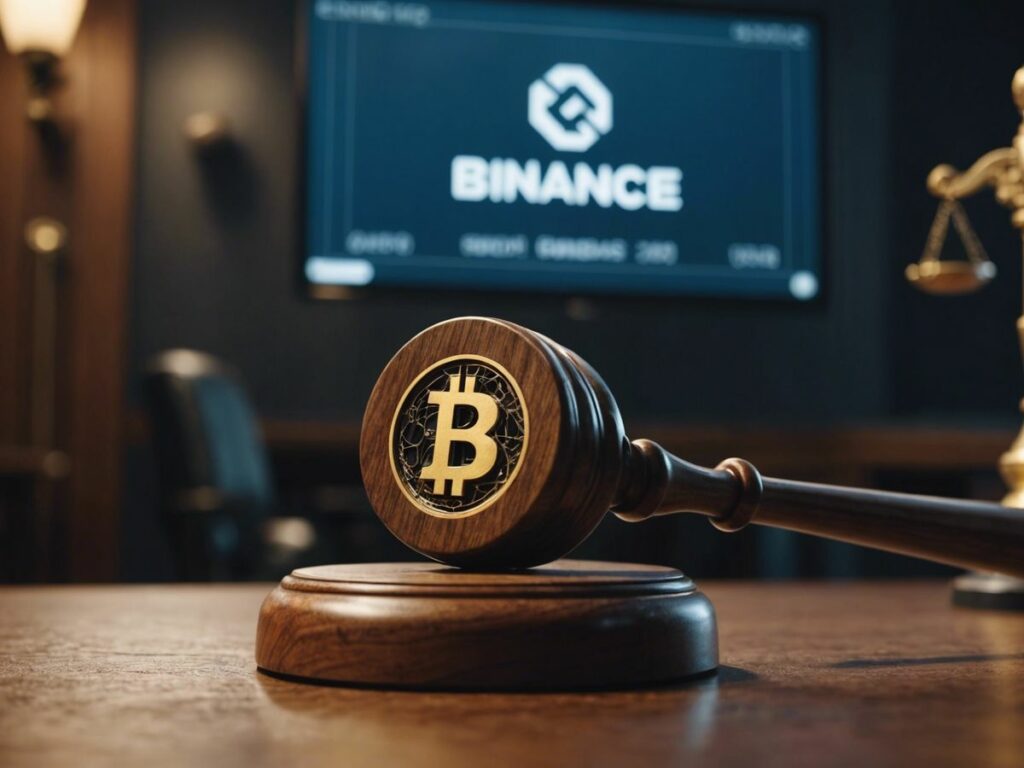In 2023, the U.S. Securities and Exchange Commission (SEC) initiated lawsuits against the world’s three largest crypto exchanges – Binance, Coinbase, and Kraken – marking the beginning of a stringent regulatory era for the previously unrestrained crypto industry.
Key Takeaways
- The SEC has accused Binance, Coinbase, and Kraken of operating unregistered exchanges and other violations.
- The lawsuits are expected to extend into 2024, with significant market reactions and potential industry shifts.
- The crypto market has shown resilience despite the legal challenges.
SEC vs. Binance: Accusations and Developments
On June 5, 2023, the SEC filed a lawsuit against Binance, accusing it of several violations, including:
- Running an unregistered exchange and allowing U.S. investors to trade cryptos.
- Selling Binance-owned cryptos BNB and BUSD stablecoin.
- Offering staking and profit-generating programs like BNB Vault and Simple Earn.
- Misrepresenting investor protection controls on the Binance.US platform.
- Using customer’s crypto and fiat assets for its own interest.
- Engaging in wash trading to inflate trading volume on Binance.US.
The SEC’s allegations against Binance are severe, with comparisons drawn to the now-defunct FTX exchange. As of late November 2023, the lawsuit remains unresolved, with Binance filing a motion to dismiss the case. The exchange agreed to pay a $4.3 billion fine to settle charges from other U.S. regulatory bodies, leading to the resignation of its CEO, Changpeng Zhao.
SEC vs. Kraken: Commingling Complaints
On November 20, 2023, the SEC filed a complaint against Kraken, accusing it of operating as an unregistered securities exchange, broker, dealer, and clearing agency. The SEC alleged that Kraken commingled customer funds for operating expenses, posing a significant risk to its customers. Kraken has denied the charges and intends to defend itself in court.
SEC vs. Coinbase: Compliance Issues
A day after the Binance lawsuit, the SEC charged Coinbase with operating as an unregistered securities exchange, broker, and clearing agency. The SEC also took issue with Coinbase’s staking-as-a-service program and its marketing campaigns. Coinbase has responded by attempting to register parts of its business with the SEC and seeking clarity on which cryptos are considered securities. The lawsuit is expected to continue into 2024.
Market Reactions and Future Outlook
Despite the lawsuits, the cryptocurrency market has shown resilience. Bitcoin (BTC) and Ether (ETH) quickly rebounded from initial sell-offs. However, cryptos identified as securities by the SEC, such as BNB, ADA, SOL, MATIC, and ATOM, faced selling pressure.
| Binance vs. SEC | Coinbase vs. SEC |
|---|---|
| Solana (SOL) | Solana (SOL) |
| Cardano (ADA) | Cardano (ADA) |
| Polygon (MATIC) | Polygon (MATIC) |
| Filecoin (FIL) | Filecoin (FIL) |
| Cosmos (ATOM) | – |
| Sandbox (SAND) | Sandbox (SAND) |
| Decentraland (MANA) | – |
| Algorand (ALGO) | – |
| Axie Infinity (AXS) | Axie Infinity (AXS) |
| Coti (COTI) | – |
| – | Chilliz (CHZ) |
| – | Flow (FLOW) |
| – | Internet Computer (ICP) |
| – | Near (NEAR) |
| – | Voyager (VGX) |
| – | Dash (DASH) |
| – | Nexo (NEXO) |
The Path Forward for the Crypto Industry
The crypto industry is bracing for more stringent regulations. Experts suggest that U.S. centralized exchanges may limit their offerings to Bitcoin and Ether, while international exchanges could list tokens not available in the U.S. There is also a push within the industry for cryptocurrencies to be regulated by the Commodity Futures Trading Commission (CFTC) rather than the SEC.
Understanding the SEC’s Role
The SEC, established in 1934, aims to protect investors and maintain fair, orderly, and efficient markets. It regulates securities markets and enforces laws against market manipulation. The current lawsuits against Binance, Coinbase, and Kraken reflect the SEC’s intent to apply these principles to the crypto industry.
Conclusion: Inevitable Regulations
Cryptocurrency regulation appears inevitable, but there is hope for a fair regulatory environment in the U.S. With clearer regulations, crypto exchanges are expected to become stronger and more secure, benefiting the industry and its participants.
